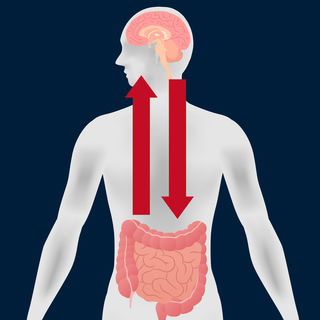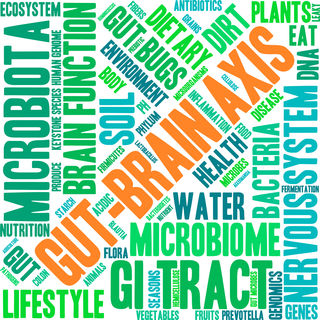Health
In a Brain Fog? Probiotics Could Be the Culprit
Probiotic use may lead to bacterial overgrowth and brain fogginess.
Posted August 8, 2018 Reviewed by Ekua Hagan

Probiotics are big business. In 2017, the global market was about $46 billion. By 2022, experts forecast that the “digestive health, immunity, and probiotics” category of consumer products will exceed $64 billion.
Have you noticed an uptick in advertisements for probiotic supplements in the form of caplets, gummies, or fizzy powders? These commercials typically promise that using a probiotic supplement will improve digestion, boost immune response, and optimize overall health by increasing the “good” bacteria in your gut. Although these products are generally safe, "too much of a good thing" can backfire.
Taking probiotics can cause a higher prevalence of something called “small intestinal bacterial overgrowth” (SIBO) and “D-lactic acidosis," which may result in disorienting brain fogginess and belly bloating, according to a first-of-its-kind study. These findings were recently published in the journal Clinical and Translational Gastroenterology.

Although the bidirectional “gut-brain axis” has been linked to neurocognitive function in previous research, this is the first study to find a correlation between the use of probiotics, metabolic acidosis, SIBO, and brain fogginess. The authors note that “helpful” colonies of gut bacteria, also known as microbiota or the microbiome—which are essential for maintaining general health and a robust immune system—primarily reside in the large intestine and colon.
"What we now know is that probiotic bacteria have the unique capacity to break down sugar and produce D-lactic acid. So if you inadvertently colonize your small bowel with probiotic bacteria, then you have set the stage for potentially developing lactic acidosis and brain fogginess," lead author Satish Rao of the Digestive Health Clinical Research Center at the Medical College of Georgia at Augusta University said in a statement. Rao is the director of neurogastroenterology and motility at AU. His Augusta Health team performs state-of-the-art research and cutting-edge clinical trials focused on improving digestive health.
According to the authors, “Brain Fogginess (BF) describes a constellation of symptoms comprised of mental confusion, impaired judgment, poor short-term memory, and difficulty with concentration, which is often transient and disabling.”
Although this study is a first step towards understanding a possible link between probiotic use and brain fogginess, more research is needed. The authors acknowledge that this pioneering research has some significant shortcomings, including a small sample size.
That said, the authors did identify that “Neurocognitive symptoms including BF or mental confusion or impaired judgment, poor short-term memory, and difficulty with concentration were described by all of the patients in the BF group." Notably, the researchers found that over two-thirds of patients with brain fogginess who were taking probiotics demonstrated D-lactic acidosis and a higher prevalence of SIBO in comparison to study participants without brain fogginess.
Additionally, Rao and colleagues were able to identify that abnormally high levels of D-lactic acid were being produced by the fermentation of a bacteria called "lactobacillus" as food was being digested in brain-fog patients using probiotics. Many of these patients reported a bloated feeling in their gut coupled with brain fogginess, which often lasted for hours after eating.
Typically, the small intestines don’t produce much D-lactic acid when digesting food. However, in some people, for reasons that are not understood, probiotics appear to cause bacterium lactobacillus to go into a feeding frenzy. This leads to the rapid fermentation of sugars, which results in the production of belly-bloating methane and hydrogen gas.
According to the researchers, the excessive amounts of D-lactic acid being produced in the small intestine are absorbed into the blood and can travel to the brain. Previous research has found that too much D-lactic acid in the bloodstream can temporarily interfere with cognitive functions, which creates brain fogginess. Alarmingly, Rao et al. found that some patients taking probiotics had two to three times the healthy amount of D-lactic acid in their blood.
Many individuals randomly self-prescribe over-the-counter probiotics and eat these chewables like candy. Although probiotics can be beneficial in some situations, the investigators warn consumers to avoid excessive and indiscriminate use of probiotic supplements. "Probiotics should be treated as a drug, not as a food supplement," Rao concluded.
References
Satish S. C. Rao, Abdul Rehman, Siegfried Yu, Nicole Martinez de Andino. "Brain Fogginess, Gas and Bloating: A Link Between SIBO, Probiotics and Metabolic Acidosis." Clinical and Translational Gastroenterology (First published: June 19, 2018) DOI: 10.1038/s41424-018-0030-7




